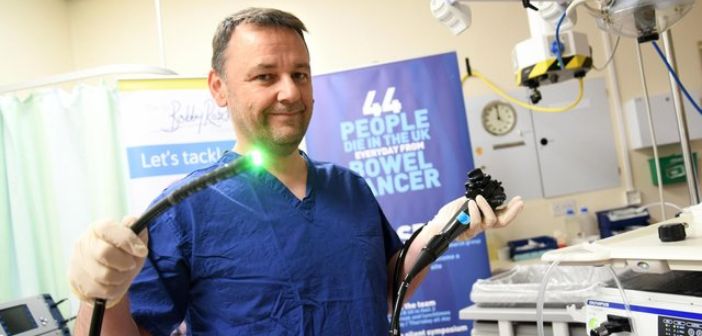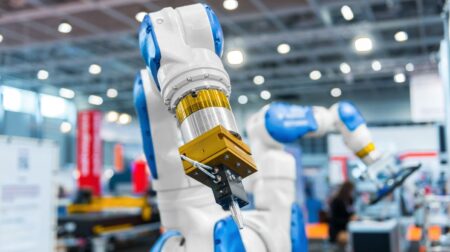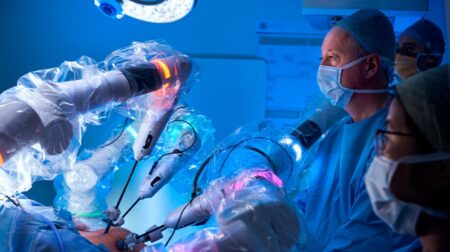The first UK clinical trial of an AI device is underway with the potential to save many lives lost to bowel cancer.
The study named COLO-DETECT is trialling the use of GI Genius, a new AI device designed to help clinicians to identify polyps during colonoscopies (examinations used to detect changes or abnormalities in the bowel (colon and rectum).
Most bowel cancers develop from a type of polyp – called an adenoma – that becomes cancerous. It is important to find as many polyps as possible to decide whether they need to be removed, as this may prevent a polyp becoming cancerous in the future, the team said.
GI Genius integrates with existing colonoscopy equipment and analyses images from the camera in real-time. It highlights any areas it thinks may contain a polyp, these areas can then be inspected more closely to determine if a polyp is present and whether it should be removed.
The study is being led by Professor Colin Rees, a consultant gastroenterologist at South Tyneside and Sunderland NHS Foundation Trust (STSFT). He is working closely alongside Linda Sharp, professor of cancer epidemiology at Newcastle University.
Furthermore, this £896,000 trial has been funded by Medtronic and will see nine NHS endoscopy units from across the country recruiting more than 2,000 patients over the next 12 months. It reached the milestone of recruiting 500 patients across the nine Trusts at the end of March.
Dr Laura Neilson, consultant gastroenterologist at STSFT, who was the first to recruit a patient into the trial, said: “Bowel cancer is entirely treatable and in many cases curable, especially if it’s diagnosed early – which is why studies like COLO-DETECT are so important.
“COLO-DETECT is without question, world leading research and we are delighted to be the first hospital in the UK to recruit a patient into this trial and to be leading this pioneering research.”








